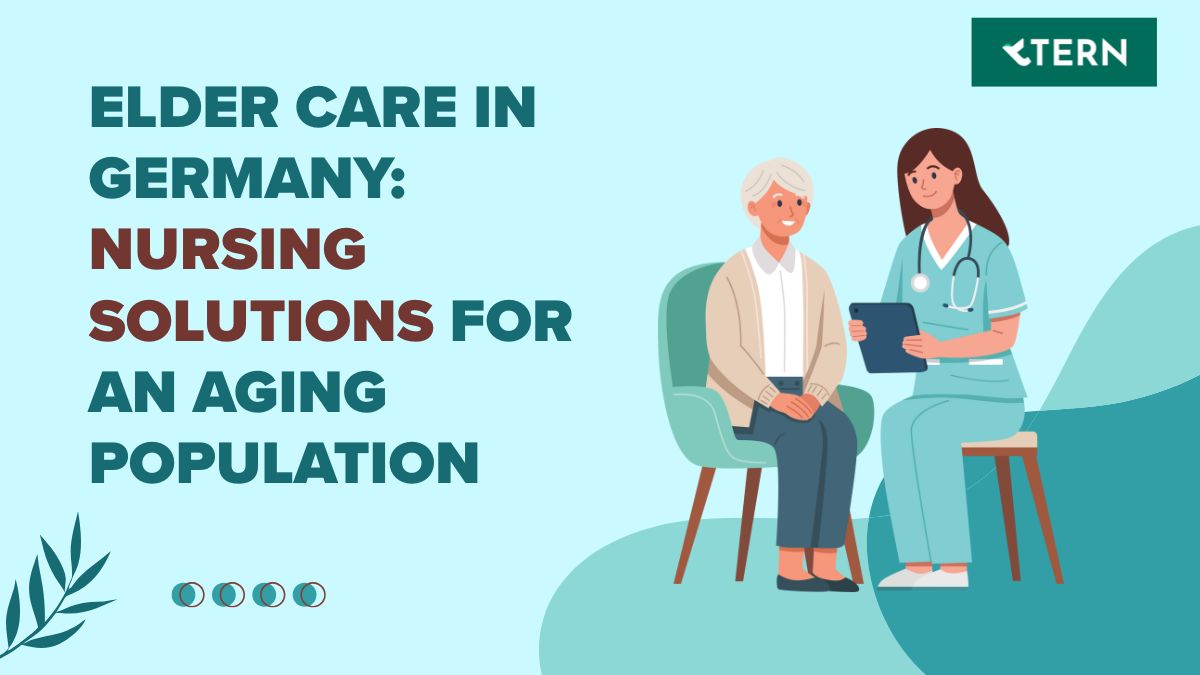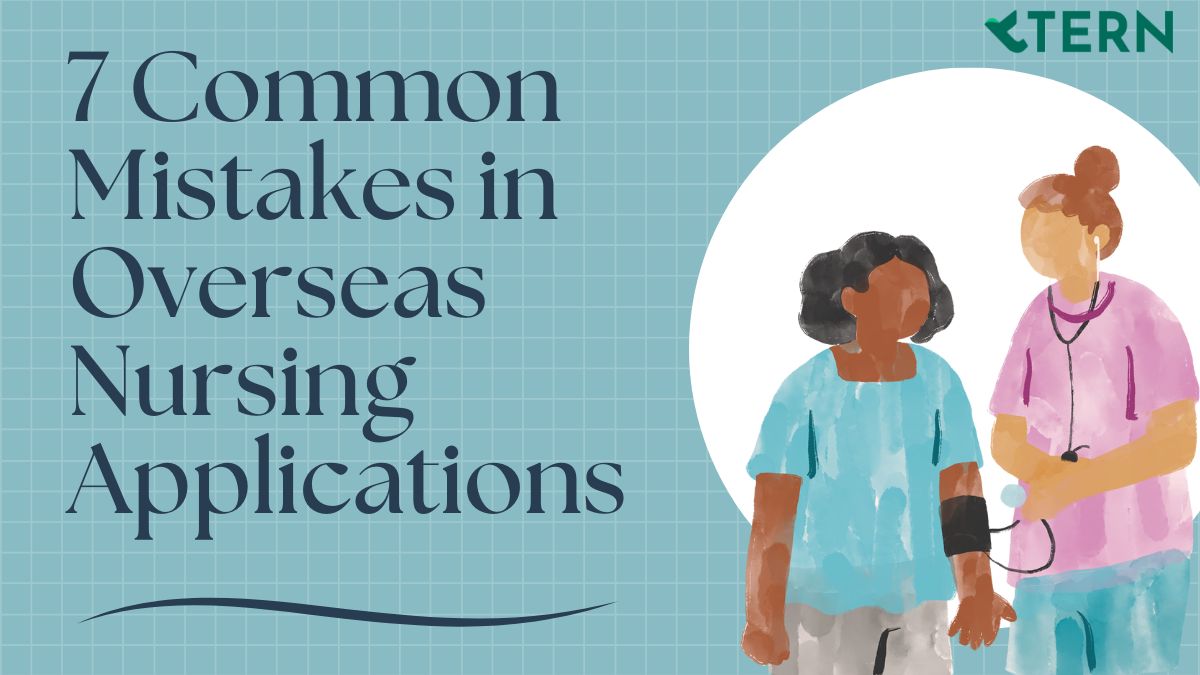Krankenpflege in Deutschland
August 14, 2025
•
Elder Care in Germany: Nursing Solutions for an Aging Population

Is Germany ready for its aging population crisis? With over 23% of its population aged 65 and older in 2025, the demand for elder care in Germany is soaring, placing nursing at the heart of this transformation. As the country faces a “silver tsunami,” with projections of 20 million people aged 67+ by 2035, the need for skilled nurses, innovative care models, and robust policies has never been greater. This blog explores the statistics behind Germany’s aging population, challenges in nursing, government support, and cutting-edge solutions shaping elder care. Whether you’re a nurse, caregiver, or seeking senior care options, this guide offers actionable insights.
Why Is Elder Care in Germany Growing?
Germany’s demographic shift is stark: in 2024, 23.2% of its 84 million people were 65 or older, a figure set to hit 24 million by 2050. The 80+ age group, at 7.2%, drives demand for specialized nursing care. Here’s why:
- Low Birth Rates: Fewer young people mean a shrinking workforce to support elders.
- Increased Life Expectancy: Germans live to ~81 years, increasing chronic care needs.
- Regional Disparities: States like Saxony have higher elderly populations, straining local resources.
This trend mirrors Europe’s, where 21.6% are 65+. By 2050, 5.6 million Germans may need long-term care, a 12% rise, fueling demand for elder care nursing. Explore nursing careers in Germany to meet this growing need.
Top 5 Challenges in Elder Care Nursing in Germany
The surge in demand for elder care in Germany faces significant hurdles, particularly in nursing:
- Nursing Shortages: A projected shortfall of 60,000 nurses by 2025 could reach 300,000 by 2030.
- Rising Costs: Nursing home and home care costs are escalating, with families facing high out-of-pocket expenses.
- Caregiver Burnout: Low wages and high stress lead to turnover in nursing roles.
- Rural Gaps: Underserved areas struggle to attract skilled nurses.
- Post-Pandemic Strain: COVID-19 exposed weaknesses, increasing reform urgency.
These challenges highlight the need for innovative elder care solutions in Germany. Learn about home care vs. nursing homes for better decision-making.
Government Policies Supporting Elder Care and Nursing
Germany’s proactive policies ensure universal elder care access. The Long-Term Care Insurance (LTCI) system, funded by employee-employer contributions, covers home care, nursing homes, and assisted living across five care levels. Key initiatives include:
- Family Care Leave: Up to 24 months of flexible work hours for caregivers.
- Pension Credits: Recognizing unpaid caregiving contributions.
- International Recruitment: Partnerships with Morocco and the Philippines to train foreign nurses.
With 86% of Germans covered by statutory health insurance and only 7% facing cost barriers, access is strong. Recent reforms emphasize community care and digital tools. Visit Germany’s Federal Ministry of Health for policy updates.
Nursing Innovations Transforming Elder Care in Germany
Innovative solutions are easing the burden on Germany’s elder care system. Technology and new care models are key:
- AI and Telehealth: AI monitors vital signs, while telehealth reduces in-person visits.
- Ambient Assisted Living (AAL): Sensors for fall detection help seniors stay independent, piloted in Dortmund.
- Robotics: The elder care robot market is growing at 14% CAGR through 2033.
- Community Models: Buurtzorg’s team-based nursing approach enhances personalized care.
- Intergenerational Programs: Pairing nursing homes with schools reduces isolation.
Companies like Clariane leverage HealthTech for 17,000+ employees, improving outcomes. Discover elder care tech trends for more insights.
How to Access Elder Care Services in Germany
Navigating elder care in Germany can be daunting. Here’s a quick guide:
- Assess Needs: Consult a doctor to determine care level (1-5) for LTCI benefits.
- Choose a Provider: Compare nursing homes, home care, or assisted living options.
- Apply for Support: Contact your insurance provider for funding details.
- Explore Subsidies: Low-income families may qualify for additional aid.
For detailed steps, check Statista’s elder care data.
FAQs on Elder Care in Germany
What is the cost of nursing homes in Germany?
Average costs range from €3,000-€5,000/month, with LTCI covering part based on care level.
How can I become a nurse in Germany?
Complete a recognized nursing program and apply for jobs via platforms like TERN. International nurses need visa sponsorship.
What innovations are improving elder care?
AI, robotics, and AAL systems enhance independence and reduce nurse workloads.
Conclusion: Shaping the Future of Elder Care in Germany
Germany’s aging population is reshaping its healthcare system, with nursing at the forefront. While challenges like staff shortages and rising costs remain, solutions such as Long-Term Care Insurance (LTCI), robotics, and community-based care models are paving the way forward.
At TERN, we believe nurses are central to this transformation. By guiding you through every step — from language training to job placement and relocation — we open doors for you to build a rewarding career in Germany while making a real difference in elder care.
Are you ready to take the next step in your nursing career?
- Contact us on WhatsApp: Message us here to start your journey.
- Sign up on our platform: Visit our AI-powered platform to create your profile and explore opportunities.
- Fill out our form: Apply now by filling your details here!
Want to join the TERN team? Check out our listed jobs here. Whatever it is, don’t wait—your dream career is within reach with TERN. Join thousands of others in building a brighter future in global healthcare.







